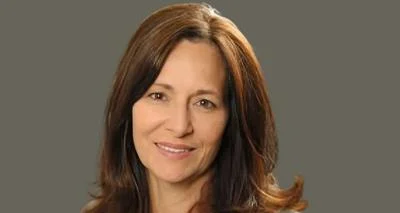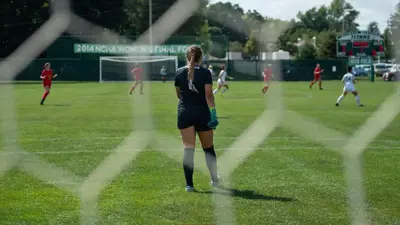City of Fairbury City Council met Sept. 30.
Here is the minutes provided by the council:
A Public Hearing of the Zoning Board of Appeals was held at Fairbury City Hall at 6:00 p.m. on Monday, September 30, 2019. Members in attendance were Zoning Chairman Gerry Vance, members Seth Welch, Sam Pica, Jim Tipton, and Eric Ray; Zoning/City Attorney Steven Mann and Zoning Administrator Nancy Widlacki. Members absent were John Gavin and Tom Bull.
Public attendees included: City Aldermen Gary Norris, Steve Endres, Lynn Dameron and Bill Schmidgall; Mayor David Slagel; Chief of Police Robert McCormick; City Superintendent Brett Ashburn; Wayne Varner, Rick Wilson, Diane Pawlowski and Kelly Kinate.
The public hearing was held to examine Public Act 101-0027, Cannabis Regulation and Tax Act, and make a recommendation to the City Council of the City of Fairbury, Livingston County, Illinois, regarding potential amendments to the Zoning Ordinance of said City as it pertains to cannabis legalization.
Chairman Vance called the meeting to order at 6:05 p.m. and stated the reason for the hearing. He then turned the hearing over to Attorney Mann.
Attorney Mann introduced himself and explained the dynamics of Public Act 101-0027 which becomes effective January 1, 2020. Attorney Mann wanted to bring the information before the major body that is going to be impacted by the Act and that is the Zoning Board of Appeals. Attorney Mann further explained that the Act allows for municipalities to prohibit or restrict what is actually done with businesses that are associated with this industry. The Act is over 650 pages which is intimidating but the Illinois Municipal League, which the City of Fairbury subscribes to, provided “fact sheets” to Illinois municipalities. Attorney Mann has found that generally, municipalities are either 1) prohibiting cannabis, or 2) allowing only certain types of businesses and certain types of zoning classifications. There is a supply chain of businesses in the industry that include cultivation centers, dispensaries, infusers, craft growers, processors, transporters, and cannabis testing facilities. Attorney Mann said the Zoning Board of Appeals’ job is to decide, along with the City Council, whether to allow cannabis in part, not at all, one or two of the businesses in the supply chain, certain parts of the businesses in the supply chain, all of the businesses in the supply chain. Each of the categories have their own restrictions in the Act as far as where they can be located, distances from schools/churches, distances from lot lines, etc. He spoke about the process that may be implemented if the City/ZBA allowed one or more business(s); would there be a Special Use Permit created instead of using the variance option that is in place already. If the City of Fairbury allows a cannabis related business, the City could earn up to 3% in revenues. The City can also put restrictions on businesses in unincorporated Fairbury within 1 1⁄2 miles of the City limits as long as the area is not being regulated by Livingston County.
Attorney Mann then asked for questions from the audience.
Question: “when does the City have to act on this?”
Attorney Mann said the law goes into effect January 1, 2020, so it would be a good idea to have ordinances in place by then.
Question: “Congressman Kinzinger said something has to be passed by today or we risk losing control. What is that?”
Attorney Mann explained the timeline from the State of Illinois for collecting tax revenues. Illinois municipalities need to pass an ordinance by October 1, 2019, in order to collect sales tax beginning January 1, 2020. The City of Fairbury will not make that deadline and will have an opportunity to pass the ordinance at a future date if the City Council and the Zoning Board of Appeals decides to allow cannabis.
Alderman Dameron wondered if the Zoning Board was putting the “cart before the horse” because if the City Council doesn’t agree to allow any cannabis, why does the Zoning Board of Appeals have to meet and make an ordinance. Attorney Mann said yes, if the council has decided to make a prohibition against all cannabis related businesses, the City sure can do that. Mayor Slagel piggybacked on Alderman Dameron’s comments by adding there is no reason to discuss zoning codes if the City is not going to allow cannabis but he doesn’t know if that’s the case. Attorney Mann’s recommendation would be to amend for a prohibition so there aren’t any gray areas. If the City decides to amend the code later on, that’s allowed.
Zoning Administrator Widlacki noted there are 7 different businesses in the Act that the City of Fairbury needs to add to the Zoning Ordinance.
At this point in the hearing, the conversation took on a “town hall” atmosphere with questions and comments being made but not necessarily directed toward any one board member. This dialogue continued for approximately 60 minutes.
Chairman Vance brought the conversation back to the Zoning requirements of allowing cannabis. He said the job of the Zoning Board is to decide if cannabis is good for our community, will it benefit our community, do we want to be known as a community with a dispensary, do we want to zone it something special, where do we want a dispensary, can it be a store front on Main Street? Chairman Vance would rather have some input and direction from the City Council who hopefully has some input from community members as to whether or not we want to go down this road at this time knowing we can revisit this at another time.
Alderman Norris noted there isn’t enough data or statistics to show one way or another if allowing cannabis is beneficial to any community.
Attorney Mann suggested the City consider creating a Special Use permit specifically for cannabis-related businesses or consider a blanket prohibition at this time. However, if the City disallows cannabis, the City still needs to define all parts of the industry in the Zoning Code. We have to do something; can’t just ignore it.
Chairman Vance asked for a voice vote allowing the Zoning Board of Appeals to proceed at the direction of the City Council. All members voted in favor. Motion passed unanimously.
Motion by Member Welch to adjourn at 7:20 p.m. All members in favor. Motion passed unanimously.
http://ww2.cityoffairbury.com/wp/wp-content/uploads/2019/10/Cannabis-Minutes.pdf





 Alerts Sign-up
Alerts Sign-up